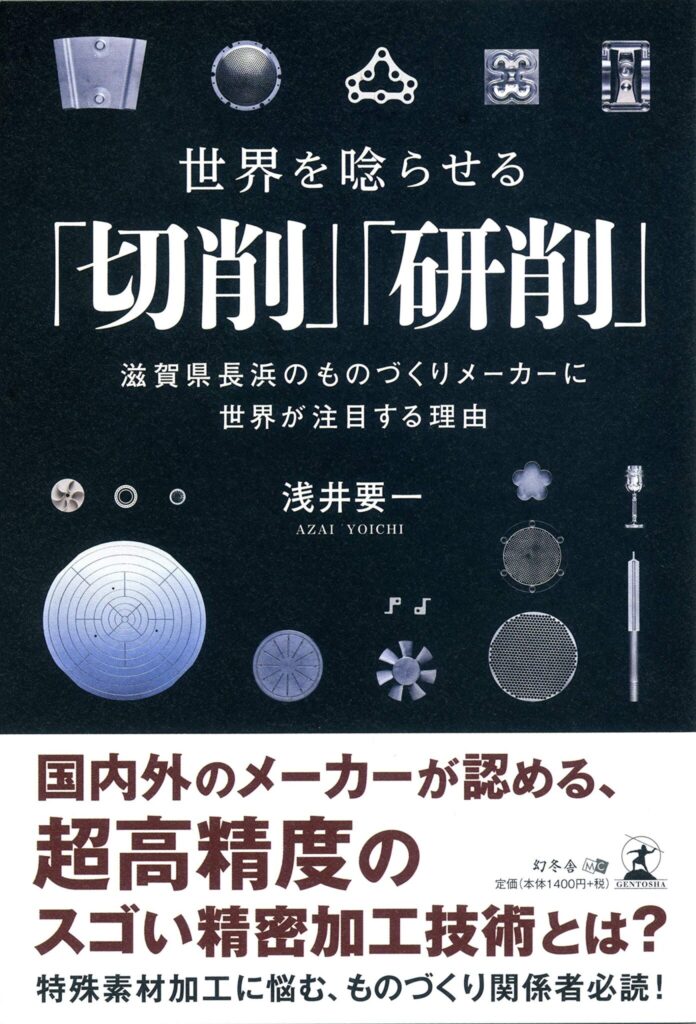“TOP Machining Technology” – Chapter 1 (Cont.12)
2023.01.12
Besides, ceramics are also difficult to machine because they are hard materials. In order to cut hard materials, it is necessary to apply a load, but when a load is applied, the material cracks.
The following is an example.
PARAT Corporation, headquartered in Osaka City, Japan, is an excellent company that has developed its own automated soldering robot and is growing rapidly. PARAT CEO Shinichiro Naka has always been committed to the vision of creating a 10-billion-yen market for RZ automated soldering robots. The soldering robots are characterized by the fact that they are used (mostly) for automotive electrical components operating in harsh environments. As the Japanese government has announced its goal of a 100% electric vehicle society by 2050, the need for automotive electrical components is expected to increase in the future. PARAT’s automatic soldering equipment and original RZ process (patented) are becoming indispensable technologies for the electrification of automobiles and automated driving. I believe that PARAT’s rapid growth is due to its dedication to meeting the needs of its customers. This is because we are able to thoroughly respond to our customers’ demands for increased productivity at their manufacturing sites and the prevention of problems that must not be caused by automated soldering robots. PARAT’s request was to produce a high-performance nozzle (soldering iron) and supply it exclusively. In order to produce a high-performance nozzle, it is necessary to know the exact requirements of the nozzle, which implies detailed information about the soldering equipment. We signed a nondisclosure agreement that included PARAT’s request (prohibition of manufacturing and selling to others) in order to have the information disclosed immediately. Now, the development by the two companies begins. The first thing we were conscious of when selecting materials was to melt solder quickly, which has a direct impact on productivity. In other words, it can conduct heat quickly. It must not degrade and crack during heating and cooling cycles, and have a low coefficient of linear expansion relative to heat. In addition, wear resistance and toughness (tenacity) are required because the material must not be shaved or cracked by repeated soldering. After considering other materials that met all of these characteristics, we finally proposed a composite material of silicon carbide (SiC) and silicon, known as MMC (metal matrix composite). SiC is a type of ceramics with good thermal conductivity, but it is hard and difficult to process precisely. MMC is made by impregnating the SiC base material with silicon, which has soft properties, to increase toughness. Since this MMC has better machinability than SiC, we thought it would also meet the customer’s need for a “material that can be precision-machined”. Although it has the best machinability, it is not easy to machine unless you are familiar with machining hard-to-machine materials. “Material Proposal x Material Processing” – without both knowledge of materials and processing technology, we will not be able to meet the needs of customers who require special materials.
The “result” of our efforts is that our automatic soldering equipment has been highly evaluated by our customers, and sales are growing rapidly. Of course, the equipment itself has received high acclaim, but since nozzles are a key component of the equipment, we are proud to say that we have contributed to the success of the products in our own way. Although PARAT is mentioned here as an example of one of our customers, we are currently working with several other customers to develop other applications for other materials. Other materials have different characteristics, and different processing methods and difficulty levels depending on the characteristics of the material.
The more diversified the materials, the more we are entering uncharted territory. We cannot help but be excited.



